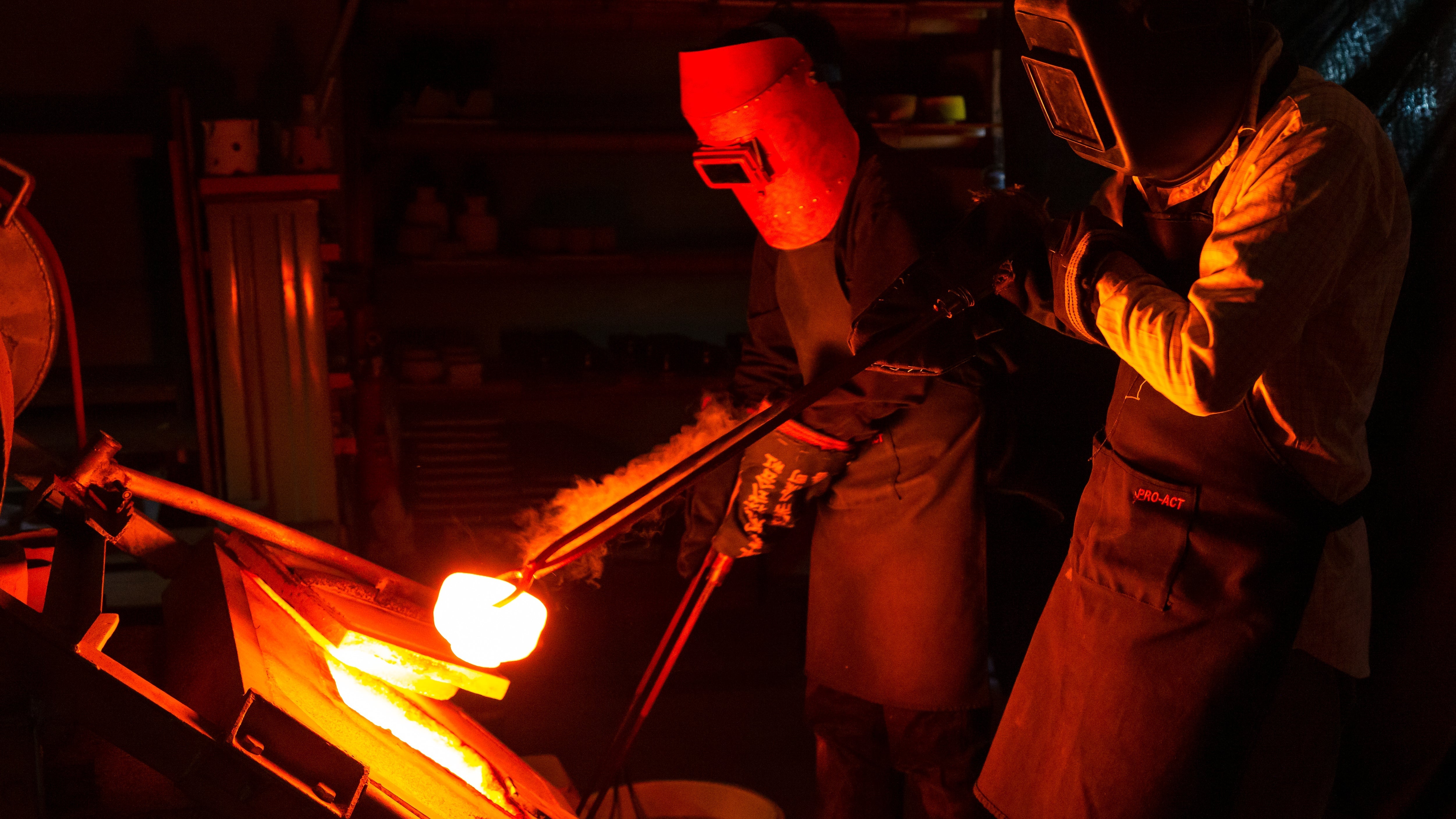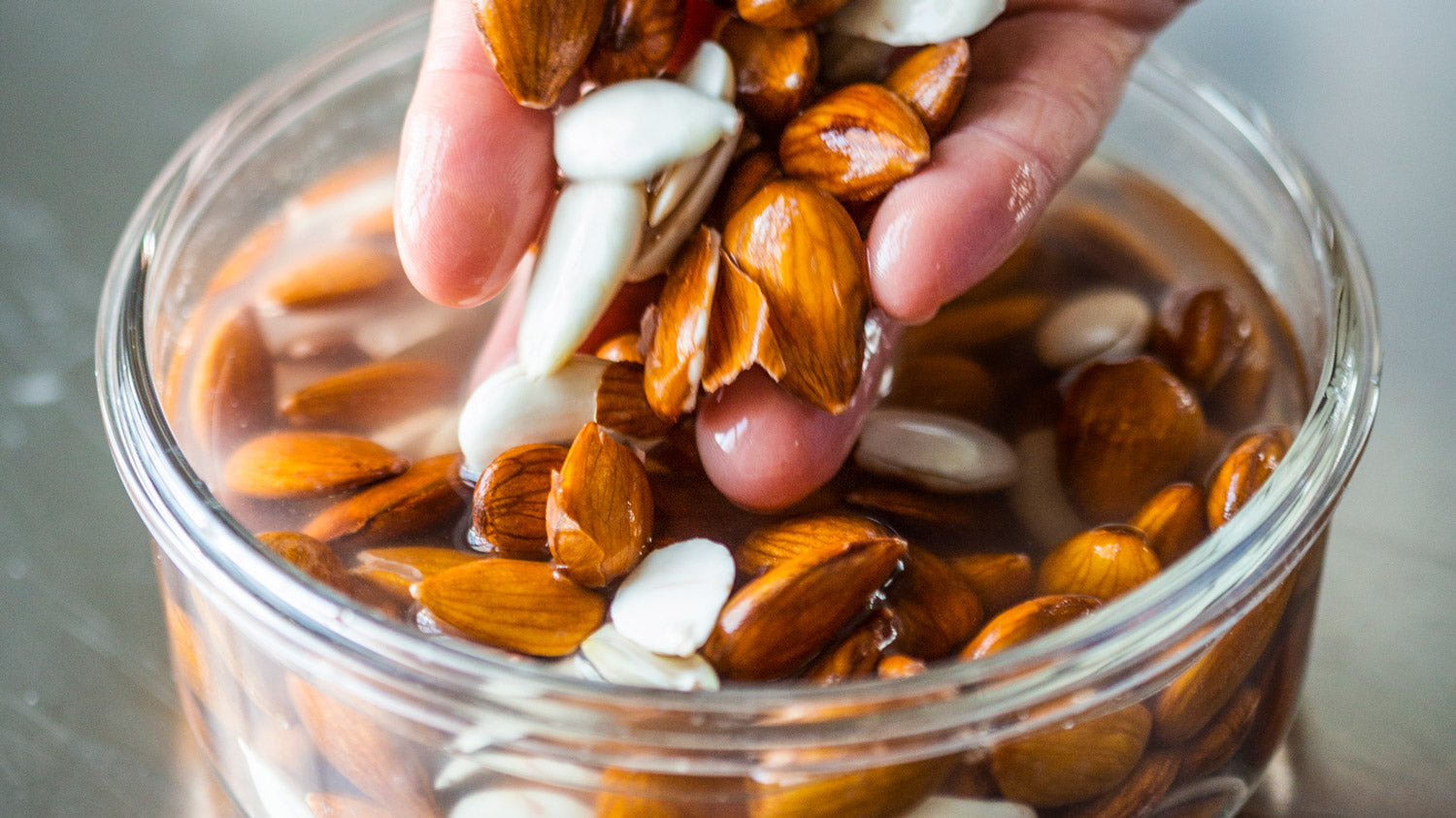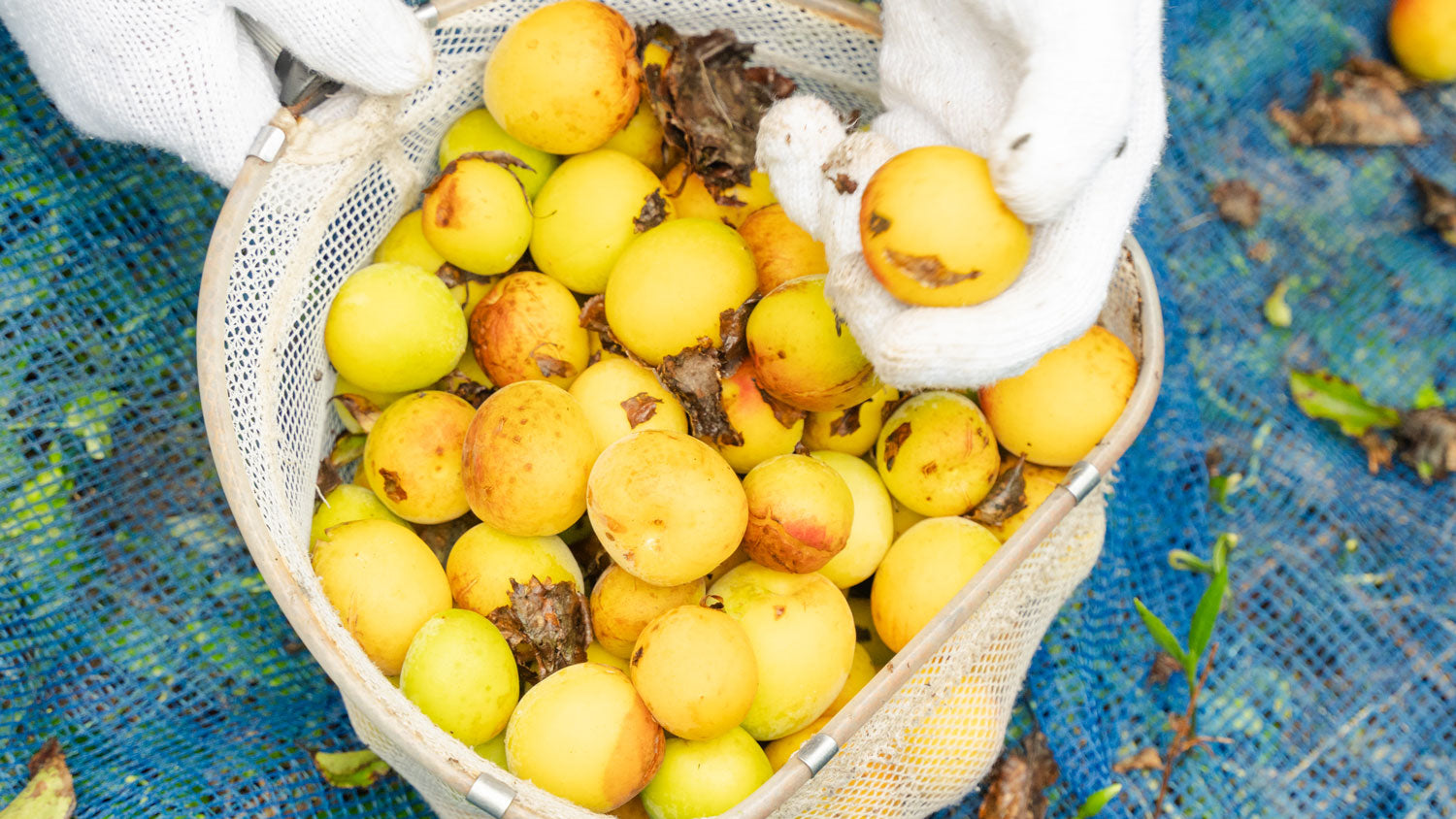Raku bowls

Raku bowls are known for their unique character and were first developed by the tea master Sen no Rikyū in the 16th century. Together with the tile maker, Chojiro, the bowls were produced as a new style of pottery for use in tea ceremonies and are still used today.
Rather than being shaped on a turntable, Raku pottery is made by pinching the clay into the desired shape and smoothing it with a spatula, giving the Raku bowls their unique shape. The bowl is fired unglazed before being fired once more with a thin layer of glaze at 1200°C. The dish is removed from the oven just before the glaze sets perfectly, while it is still glowing. It is allowed to cool until the glaze sets and is then placed in water to cool completely. This gives Raku ceramics their soft appearance and unique glaze that almost looks metallic.
To remove the Raku bowls from the hot oven, it is necessary to use tongs. The traces of the seaweed are then embossed on the outside of each bowl and especially on the Karo Raku (the black bowls) which are fired at a higher temperature. These could be mistaken for scratches but instead should be appreciated as yet another unique expression of Raku bowl manufacturing.







